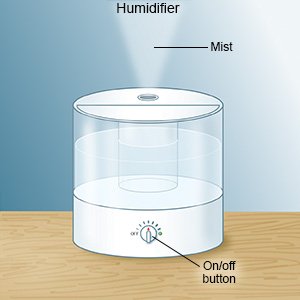Pharyngitis
Medically reviewed by Drugs.com. Last updated on Aug 4, 2025.
Pharyngitis, or sore throat, is inflammation of the tissues and structures in your pharynx (throat). Pharyngitis is most often caused by bacteria or a virus. Other causes include smoking, allergies, or acid reflux.
DISCHARGE INSTRUCTIONS:
Call your local emergency number (911 in the US) if:
- You have trouble breathing or swallowing because your throat is swollen.
Return to the emergency department if:
- You are drooling because it hurts too much to swallow.
- Your fever is higher than 102˚F (39˚C) or lasts longer than 3 days.
- You are confused.
- You taste blood.
Call your doctor if:
- Your throat pain gets worse.
- You have a painful lump in your throat that does not go away after 5 days.
- Your symptoms do not improve after 5 days.
- You have questions or concerns about your condition or care.
Medicines:
Viral pharyngitis will go away on its own without treatment. Your sore throat should start to feel better in 3 to 5 days. You may need any of the following:
- Antibiotics treat a bacterial infection.
- NSAIDs help decrease swelling and pain or fever. This medicine is available with or without a doctor's order. NSAIDs can cause stomach bleeding or kidney problems in certain people. If you take blood thinner medicine, always ask your healthcare provider if NSAIDs are safe for you. Always read the medicine label and follow directions.
- Acetaminophen decreases pain and fever. It is available without a doctor's order. Ask how much to take and how often to take it. Follow directions. Read the labels of all other medicines you are using to see if they also contain acetaminophen, or ask your doctor or pharmacist. Acetaminophen can cause liver damage if not taken correctly.
- Take your medicine as directed. Contact your healthcare provider if you think your medicine is not helping or if you have side effects. Tell your provider if you are allergic to any medicine. Keep a list of the medicines, vitamins, and herbs you take. Include the amounts, and when and why you take them. Bring the list or the pill bottles to follow-up visits. Carry your medicine list with you in case of an emergency.
Manage your symptoms:
- Gargle salt water. Mix ¼ teaspoon salt in an 8 ounce glass of warm water and gargle. Do not swallow. Salt water may help decrease swelling in your throat.
- Drink liquids as directed. You may need to drink more liquids than usual. Liquids may help soothe your throat and prevent dehydration. Ask how much liquid to drink each day and which liquids are best for you.
- Use a cool mist humidifier. This will add moisture to the air and help decrease your cough.

- Soothe your throat. Cough drops, ice, soft foods, or popsicles may help decrease throat pain.
Prevent the spread of pharyngitis:
Cover your mouth and nose when you cough or sneeze. Do not share food or drinks. Wash your hands often. Use soap and water. If soap and water are unavailable, use an alcohol-based hand sanitizer.
 |
Follow up with your doctor as directed:
Write down your questions so you remember to ask them during your visits.
© Copyright Merative 2025 Information is for End User's use only and may not be sold, redistributed or otherwise used for commercial purposes.
The above information is an educational aid only. It is not intended as medical advice for individual conditions or treatments. Talk to your doctor, nurse or pharmacist before following any medical regimen to see if it is safe and effective for you.
Learn more about Pharyngitis
Treatment options
Care guides
Further information
Always consult your healthcare provider to ensure the information displayed on this page applies to your personal circumstances.
